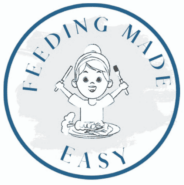You may never have heard of choline in your health classes or prior to the last few years. It’s only been recently that it’s been getting a lot of buzz. It’s used in a lot of processes in the body, one of which is early brain development, making it very important for babies and kids.
This post may contain affiliate links and when you click on the links I may earn a small commission at no charge to you. As an Amazon affiliate, I earn a commission from qualifying purchases.
What does it do?
Choline is used to help make cell membranes. It is also used to produce a neurotransmitter used for memory, mood, muscle, control, and other brain and nervous system functions (1). It has a role in modulating gene expression, lipid transport and metabolism, and brain development as well.
Where can I get it?
Our body naturally makes some choline, but it’s not enough. The most common sources of choline are meat, eggs, poultry, fish, and dairy products. Potatoes and cruciferous vegetables such as brussels sprouts, broccoli, and cauliflower will have some. Some types of beans, nuts, seeds, and whole grains will have some as well.
Recommended Intakes
I generally do not recommend closely monitoring intake. My goal is to decrease stress and trying to estimate your child’s intake of anything will undoubtedly increase yours. However, I know it can be helpful to have ballpark ranges.
| Age | Recommended Amount |
| 0-6 months | 125 mg |
| 7-12 months | 150 mg |
| 1-3 years | 200 mg |
| 4-8 years | 250 mg |
The adequate intake is based on the prevention of liver damage. The amount of choline that each person needs will be based on other vitamin intakes.
Choline Deficiency
Most people in the US do not consume enough. Deficiency can cause muscle damage, liver damage, and liver disease. True deficiency is rare, even though consumption is low, because the body is able to make some of its own choline.
Can my child have too much choline?
Signs of excessive intake include a fishy body odor, vomiting, excessive sweating and salivation, hypotension, and liver toxicity (1). For children under age 1, it is not recommended to give them a supplement with choline. Intake should be through breast milk, formula, or diet alone.
Choline Rich Foods
- liver
- egg
- beef
- soybeans
- chicken
- fish
- potatoes
- kidney beans
- quinoa
- milk
- yogurt
- brussels sprouts
- broccoli
- mushrooms
- cottage cheese
- peanuts
- cauliflower
- peas
- sunflower seeds
- brown rice
- mandarin orange
If you are focusing on iron-containing foods, you will likely also be getting choline. This is why I generally don’t emphasize nutrients but rather the whole diet. Many foods contain several of the nutrients your child needs. Focusing on a varied diet will likely provide them with what they need.

Krystyn Parks is a Registered Dietitian and Lactation Consultant who specializes in feeding children. She has a Master’s Degree in Nutritional Science from California State University Long Beach. She is an International Board Certified Lactation Consultant and has been registered with the Commission on Dietetic Registration since 2013.
